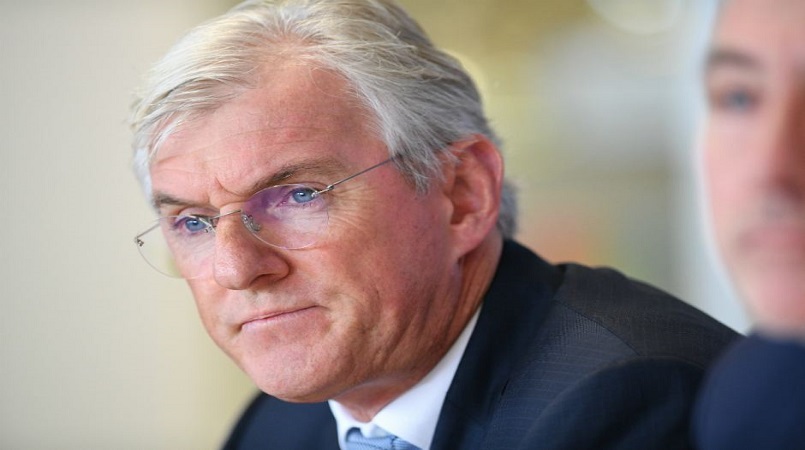
The long and difficult road to reform in the running of Australian football will now take a short detour to Zurich.
But hope exists that an important step has, nonetheless, been taken towards finding a resolution to the bitter stalemate between the FFA, professional clubs and other stakeholders that has threatened to bring down the sport in this country.
Last year FIFA felt compelled to intervene to address a lack of democratic process and transparency in the governance of the Australian game.
Efforts by the FFA to resolve those issues in house were found wanting, so a joint delegation from the world governing body and the Asian Football Confederation (AFC) was this month dispatched to Australia to force change.
After three days of intense meetings with a wide variety of the local stakeholders, they have returned home to Switzerland to consider the make-up of a "congress review working group" charged with fixing the impasse.
Lowy a no-show
Embattled FFA chairman Steven Lowy was notable by his absence from the talks on Thursday, away on Westfield business.
What impact, if any, that will have on FIFA thinking is difficult to second guess, though it would have done little to soften ill-feelings between the most senior administrator in the game and A-League club chairmen.
"The visiting FIFA/AFC officials thanked each group for its contribution and urged everyone involved to continue the positive dialogue as part of the review process," the FFA said in a statement.
"FIFA will now decide on the terms of reference for the Congress Review Working Group, including its composition, mandate and timelines."
That last line is telling. It is little more than two months since they released a similar statement saying that the FFA themselves would establish the working group "including all relevant Australia stakeholders with direct support from FIFA and the AFC".
There is no doubt who is in charge of proceedings now.
The central issue in the dispute, and that which primarily drew FIFA in to Australian football's toxic civil war, has been the make-up of FFA's Congress — the body that elects board members and so has effective control of the game in Australia — and its lack of democratic representation.
As it stands the Congress is made up of just 10 members, with state and territory associations accounting for nine seats, just a single seat for the A-League clubs and no representation for the women's games, referees or the players' union.
An FFA proposal last year, rejected by enough member associations (the professional clubs and the NSW and Victoria state federations) to see it fail to reach the 75 per cent support needed for ratification, would have increased the Congress to 13 seats, giving A-League clubs an additional two and one to the Professional Footballers Association (PFA).
The A-League chairmen accused Mr Lowy of trying merely to fend off a threat from FIFA of imposing a "normalisation committee" — which would have seen the world governing body assume complete temporary control over Australian football — if they could not improve the breadth of governance by a November, 2017, deadline, while attempting to retain a grip on the sport's future in Australia.
'Ineffective' governance criticised
Earlier this week the A-League clubs, through the Australian Professional Clubs Association (APFCA), submitted a report to FIFA with far greater reach in criticising ineffective governance in the Australian game.
They claimed the status quo threatened the very viability of the sport should it go unchallenged.
The submission even called for the FFA to be excluded from contributing to the congress review working group.
Time will tell if that wish is granted, with FIFA due to report in the next few weeks.
What is the FFA Congress?
The FFA Congress manages how football is run across Australia, electing members of the FFA board and approving changes to its constitution.
State and territory associations, as they have for many years, still wield a lot of power. They have nine (NSW is split into two) of the 10 seats on the current FFA Congress.
All parties agree this overall number needs to expand. In fact, the number of seats of similar bodies overseas run into the hundreds.
In addition to the need to expand the congress — a point of impasse for over two years now — the clubs lobbied for other changes, including greater financial transparency, more independent arbitration processes and a greater commitment to gender equality.
The submission went as far as bringing in to question the FFA's compliance with membership of FIFA, pointing out that Australia's governing body was unique in world football as being listed as a public company rather than an association.
APFCA viewed this week's talks as positive and progressive, and more open and constructive than previous interactions with the FFA.
Chairman Greg Griffin struck an upbeat tone, saying that "because of the collaboration between parties, football is the winner".
Before dispatching the visiting party this week, FIFA pulled back from the threat of taking direct charge of local affairs, attempting to broker peace by bringing the warring parties together to air their grievances and make the case for their own solutions.
Thursday's meeting came at the end of a rigorous round of submissions from the professional game, state federations, PFA, the Association of Australian Football Clubs, referees, coaches, women's football and fans.
Their voices heard, now they must wait for a decision on the next step forward that should materially impact the battle for control of Australian football's future.
